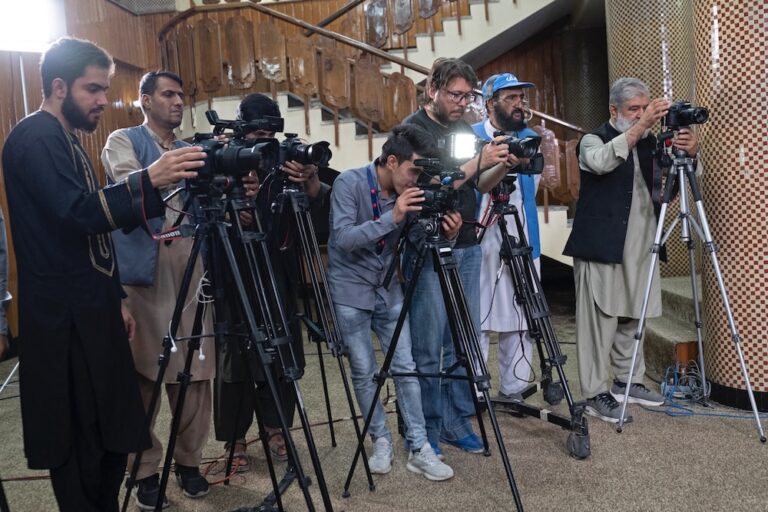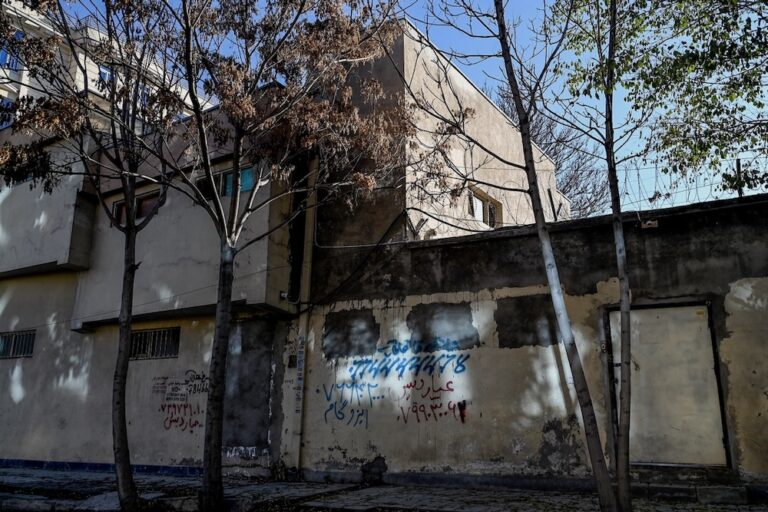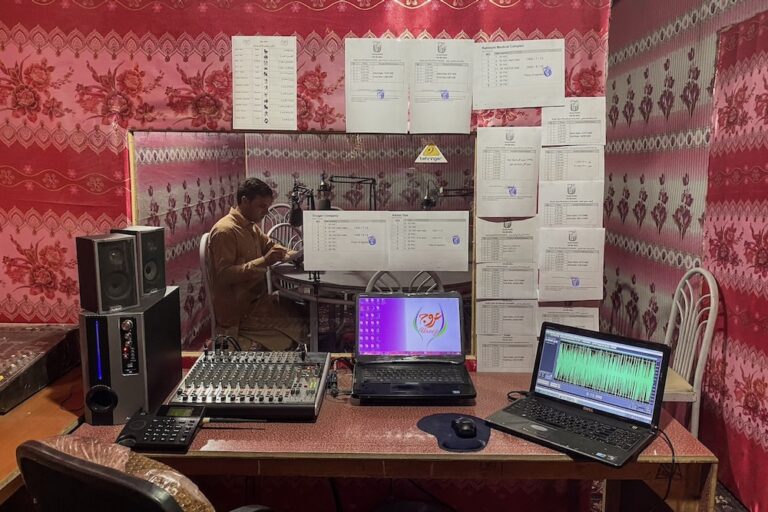(RSF/IFEX) – In a letter to United States (US) Defence Secretary Donald Rumsfeld, RSF expressed its deep concern after the destruction of the Al Jazeera’s television channel’s offices by a US air forces missile. “If the US air forces were ordered to destroy this Arab channel’s installations, it could be an extremely serious attack against […]
(RSF/IFEX) – In a letter to United States (US) Defence Secretary Donald Rumsfeld, RSF expressed its deep concern after the destruction of the Al Jazeera’s television channel’s offices by a US air forces missile. “If the US air forces were ordered to destroy this Arab channel’s installations, it could be an extremely serious attack against press freedom,” declared RSF Secretary-General Robert Ménard. Despite the initial declarations of a US spokesman, who asserted that Al-Jazeera had not been targeted, the organisation asked the State Secretary to supply further information about the incident. “Endangering journalists’ lives and destroying a private television channel’s material is unworthy of a democracy,” added Ménard
According to information gathered by RSF, the US army is assumed to have bombed Qatari television channel Al-Jazeera’s Kabul offices on the morning of 12 November 2001. Just as the first Northern Alliance troops entered the city, which was abandoned by the Taliban, missiles reportedly targeted the television channel’s offices. Although there were no victims, the channel’s equipment was totally destroyed. The missile did not explode on impact. Officials from the Arab information channel asserted that the US army knew perfectly well where their offices were located, and that the incident could hardly be an error. But according to some sources, the Taliban also had offices in the building. A US spokesman declared on 13 November that the building had been targeted because it sheltered Al-Qaida elements, and that there had been no intention of targeting the television station. Station correspondent Taysser Allouni and twelve other station employees were reported missing between the evening of Monday 12 November and Wednesday 14 November, but they are believed to be safe. Before leaving the city, the Taliban asked journalists to gather in the Intercontinental Hotel. Allouni was the only foreign journalist authorised by the Taliban to work in Kabul since 11 September. His colleague Youssef al-Shouli, Al-Jazeera’s correspondent in Kandahar, left the Taliban stronghold for Pakistan. Station officials feared revenge acts from Afghan fighters against Arab journalists.
Since the beginning of the war between the US and the Taliban regime, the Al-Jazeera station has been strongly criticised by Washington authorities. On 2 October, RSF expressed its alarm following Secretary of State Colin Powell’s statements about Al-Jazeera. Powell said on the US television channel CBS that Al-Jazeera “gives very much time and attention to some vitriolic declarations” and is “irresponsible”. He denounced the Qatari channel’s “inflammatory rhetoric.”
Finally, RSF noted that US forces repeatedly bombed the buildings and installations of the Taliban-controlled radio station, television channel and publications. On the afternoon of 12 November, BBC and Associated Press agency offices also suffered material damages after a bomb targeted a neighbouring building. William Reeve, a BBC journalist who was interviewed during the explosion, was not wounded.


